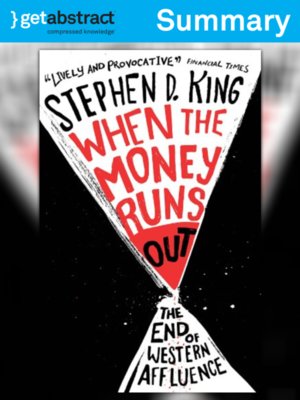
Sign up to save your library
With an OverDrive account, you can save your favorite libraries for at-a-glance information about availability. Find out more about OverDrive accounts.
Find this title in Libby, the library reading app by OverDrive.



Search for a digital library with this title
Title found at these libraries:
| Library Name | Distance |
|---|---|
| Loading... |
getAbstract Summary: Get the key points from this book in less than 10 minutes.
In this "mixture of economics, politics and history," economist Stephen D. King inches toward the conservative side with his attitudes and analysis of government debt and stimulus. King shares a concern with other observers that the financial crisis, quantitative easing and contemporary economic circumstances are leading to "schisms" in society. He answers the call for a 1930s-like stimulus by noting that governments have already shot more stimulus bolts than President Franklin Roosevelt, who faced a different situation, ever did. King encompasses a wide range of references – economic history, Japan and Argentina, economist Ludwig von Mises's "illusory prosperity" concept, the late-1990s Asian crisis, and the contrasting fortunes of different generations – in order to ask a telling question: What are the consequences when foreigners come to feel less confident in Western finances and want more hard assets in debt repayment? King's most exciting argument is in favor of nominal GDP targeting, perhaps the next big policy idea in coming years. getAbstract recommends his rich exegesis as an intelligent, concerned contribution to the financial debate.
Book Publisher:
Yale UP







